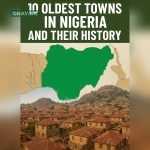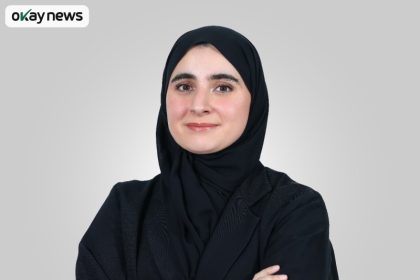The revered throne of the Awujale of Ijebuland is vacant following the passing of Oba Sikiru Kayode Adetona at 91, after a remarkable 65-year reign.
As Ijebuland prepares for a new era, here is a clear, authoritative guide to the succession process, the ruling houses, and the kingmakers who will shape the future of the stool.
Okay.ng reports that the selection follows a well-defined legal and customary framework designed to ensure continuity, legitimacy, and stability.
For historical context and deeper background, see our companion piece Awujale of Ijebuland: Past and Present – Full List, which traces the lineage from antiquity to the present day.
What the Law Says About Eligibility and Rotation
Under the Western State Chieftaincy Declarations made pursuant to the Chiefs Law 1957, the Awujale is produced by a rotational system among four ruling houses: Gbelegbuwa, Anikinaiya, Fusengbuwa, and Fidipote. The declaration also spells out the order of rotation. With the late Oba Adetona hailing from Anikinaiya, the Fusengbuwa Ruling House is next to present candidates.
To be eligible, a candidate must be a male prince of the ruling house whose turn it is. Customary explanations note that, in rare circumstances where no suitable male is available, an Abidagba (a candidate of female lineage born during a father’s reign) could be considered, but the governing declaration remains the touchstone.
The Step-by-Step Process That Produces a New Awujale
The selection moves through clearly defined stages that balance family nomination, traditional scrutiny, kingmakers’ decision, and government recognition.
First, the ruling house convenes a family meeting. The Fusengbuwa family will call a formal meeting to nominate one or more qualified princes. Names from social media “lists” carry no authority until ratified by the family’s leadership and secretariat.
Second, the Odis receive and transmit the nomination. The Odi chiefs act as traditional functionaries who receive the family’s nominee(s) and pass the names to the kingmakers for consideration. Their role is administrative and ceremonial, ensuring that procedure and documentation are in order.
Third, the kingmakers deliberate and decide. Thirteen kingmakers drawn from four traditional classes consider the nominee(s). These are the Ilamuren, Odi, Osugbo, and Pampa classes.
Specifically, the Ilamuren class includes the Olisa of Ijebu-Ode, Ogbeni-Oja, Egbo, Apebi, Olotufore, and Olotu-Olowa; the Odi class includes the Ogbeni-Odi-Imesi and Ekeji-Odi-Iletu; the Osugbo class is represented by the Oliwo of Ijebu-Ode; while the Pampa class comprises the Agbon, Kakanfo, Lapoekun, and Balogun of Ijebu-Ode. After scrutiny, the kingmakers vote to approve a single candidate.
Finally, the government issues recognition and a staff of office. Once the kingmakers present their choice, the Ogun State Government completes legal vetting and, upon approval, presents the Instrument of Appointment and Staff of Office to the new Awujale. Recent statements from the governor emphasize a fair, transparent process and the urgency of filling the stool in line with the law.
Why the Process Matters to Ijebuland
The Awujale is more than a traditional title. He is a cultural custodian, a spiritual symbol, and the central figure at events such as Ojude Oba, where the Ijebu people reaffirm unity and identity. A predictable, lawful process protects the legitimacy of the stool and strengthens confidence among Ijebu sons and daughters worldwide.
Common Questions, Answered
Who can contest now?
Only princes from the Fusengbuwa Ruling House are eligible at this time, because of the rotation order set out in the applicable declaration. Non-members of the house are not entitled to vie for the stool.
What exactly do the kingmakers do?
They evaluate, vote, and present the chosen name to government. Their composition by class and title is fixed under the declaration, ensuring continuity and balance in the process.
Does the government choose the Awujale?
No. The government recognizes the candidate selected through the customary process and then presents the staff of office. The administration has publicly pledged to support whatever lawful choice the kingmakers present.
When will the new Awujale emerge?
Timelines depend on the ruling house’s internal nominations, the kingmakers’ sitting, and completion of legal formalities. Public updates typically come from the ruling house secretariat and the Chiefs-in-Council.







